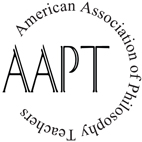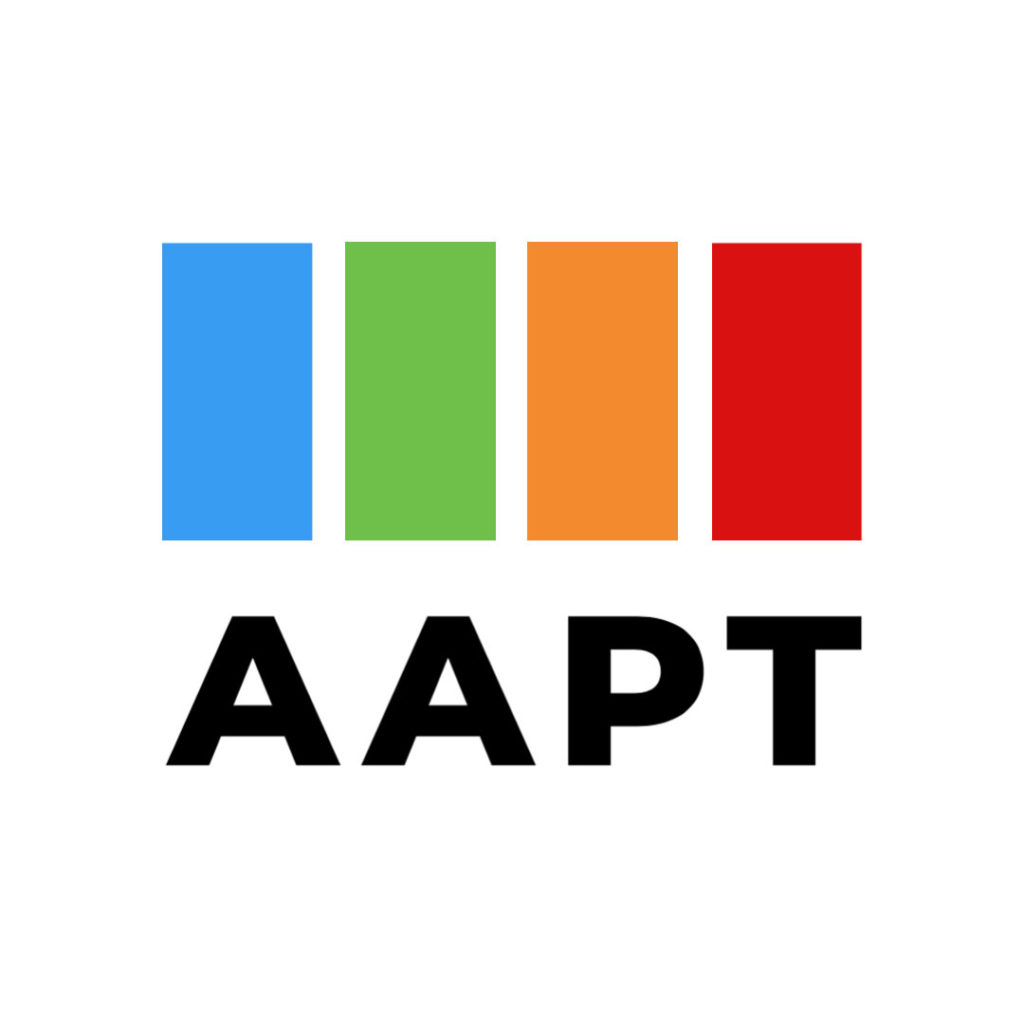The AAUP and Philosophical Service
Or, What I Did This Summer
Rory Kraft
AAPT Treasurer
This summer I spent four days on a college campus, sleeping in dorm rooms, attending sessions on how to be a better member of my profession, learning, making friends, and discovering what others were doing on their campuses. Meals were taken in the dining hall, larger gatherings were held in conjunction with talks, and after-hours socializing including visiting the neighboring bars and restaurants.
No, you didn’t miss the AAPT bi-annual conference.
I went out to Denver and attended my first AAUP Summer Institute. As many of you know, the American Association of University Professors was founded 100 years ago in part to assist the profession of college-level teaching become recognized as a legitimate career. The ideas of professional rights and obligations, academic freedom, shared governance, and tenure and promotion were unheard of then and largely have come about because of work by the AAUP. Philosophers John Dewey and Arthur Lovejoy were founders and early leaders of the AAUP.
My institution has had an AAUP chapter for forty-five years, though at times the work of the chapter was rather little. We are an advocacy chapter, which means that rather than being recognized as a collective bargaining unit by the college our role is to advocate for the best practices of the profession as exemplified by AAUP standards. We work closely with the faculty senate and the administration and attempt to guide rather than to rouse rabble.
Beyond the déjà vu feeling I would get occasionally from similarities between the AAPT conference and the AAUP Summer Institute, there were many instances in which I was reminded again and again about the work that we philosophers could do for the professorate, and how AAUP stands to help us in that work. A recurring motif in sessions was the need for clear, unambiguous language, and holding everyone (faculty, administration, trustees) to standards which make sense not just in the immediate case but in the overarching principles underlying those standards. In other words, they called repeatedly for those who have skill with doing philosophical analysis and theoretical work.
For several years I have been thinking about the connections between my philosophical life and the service life of a professor. At past AAPT conferences I have presented on the philosophical underpinning of new faculty mentoring and on what a philosopher can bring to faculty senates and governance committees. At the APA I have presented on connections between philosophy and academic internships. At the National Society for Experiential Education I presented on how to make those internships more valuable, in part by making (philosophical) reflection more central to the student experience. I have been thinking a lot about connections between philosophy and the work we do in our professional life. One of the refreshing things about my encounters at AAUP was that others were doing some of the same work. This explicit linking of philosophy and rofession is something which we can do both in the AAPT and the AAUP.
One of the goals of the AAPT, as indicated in our Articles of Incorporation, is to “facilitate professional cooperation of the members.” I imagine that most of us read that phrase to be discussing cooperation as it relates to becoming better teachers. Our focus on teaching allows us to engage with others’ practices, work toward expanding the scholarship of teaching and learning, and, in general, discover new and different methods and approaches to teaching. Just as the APA tends to focus on scholarship, we tend to focus on teaching. (It is in our name after all!) But in leaving aside the “third leg” of service from the teaching-scholarship-service understanding of our job we do a disservice to ourselves, our institutions, and our profession. Our work on teaching enhances our understanding of the profession, and our work on the profession enhances our teaching.
Think for a moment about academic freedom. We often take for granted that we have the freedom to control our classrooms in terms of content, methods of delivery, manner of assessment, text selection, etc. But the idea of academic freedom comes out of an understanding of professor-ship as a profession. A notion central to the foundation of the AAUP. And in a time where we often hear about the increasing “corporatization” of campuses, the link between the freedoms that AAUP advocates for and the work of teaching that AAPT advances is one that ought not be missed.
Think about the work we do to assess the success of our courses, our programs, our departments. Underlying the assumption that investigating our approaches to fulfill our course/program/departmental goals is the idea that good teaching, effective teaching, is desirable. Improving our teaching is a type of service to the profession in that it displays that we take our professional obligations seriously.
Rather than recounting what I learned at the AAUP Summer Institute, I would instead ask you to think about what, as philosophers, and specifically as philosophers who are concerned with teaching, we can do to further the professional cooperation the AAPT calls for.
Two side-notes worth considering: of the 300 folks at the AAUP, I kept running into philosophers, most of whom accidently ended up doing work on their campuses in enhance best practices because of they were tapped to contribute their philosophical skills; one morning at breakfast I overheard at another table “Philosophers make the best parliamentarians.” As philosophers we have training in considering assumptions, analyzing arguments, working toward clarity, and understanding the interaction between principles. Perhaps it is an obligation to the profession that we contribute in this manner, not “merely” as parliamentary guides, but as professionals who bring forward out own expertise to our campus communities.
Contributing to the profession through service can take on many roles: participation in the work of faculty senates, service on committees at and beyond one’s home institution, becoming active in the work of an AAUP chapter, making explicit to one’s institution the link between scholarship, teaching, *and* service, and more.
This year the AAPT endorsed the 1940 Statement of Principles of Academic Freedom and Tenure. The statement, written jointly by the AAUP and the Association of American Colleges (now known as the Association of American Colleges and Universities or AAC&U), has been endorsed by over 250 other scholarly organizations and adopted by many colleges and universities in the U.S. In part, the statement holds that institutions of higher learning “are conducted for the common good and not to further the interest of either the individual teacher or the institution as a whole.” That sounds like something that as teachers and as philosophers we can get behind.


